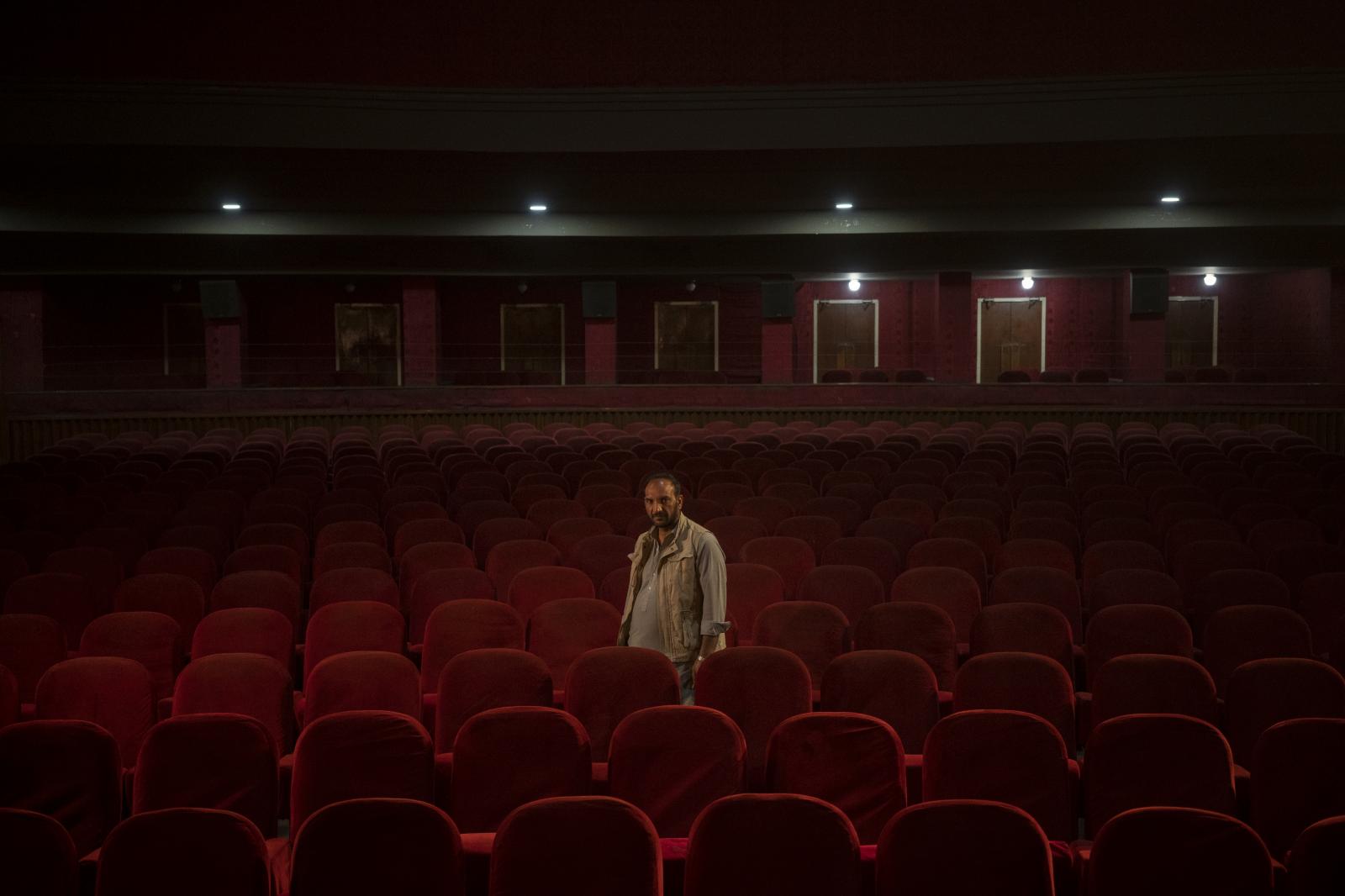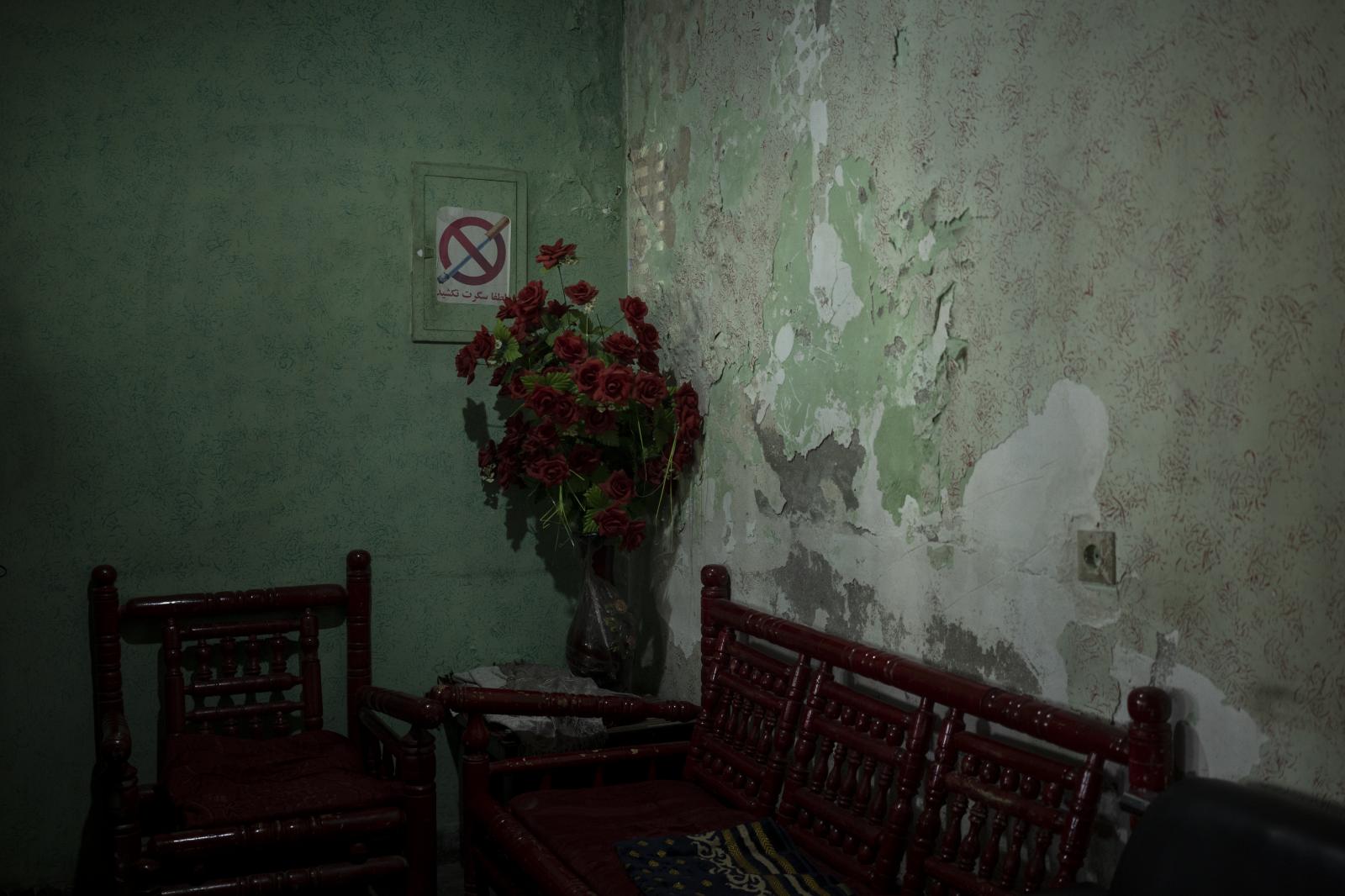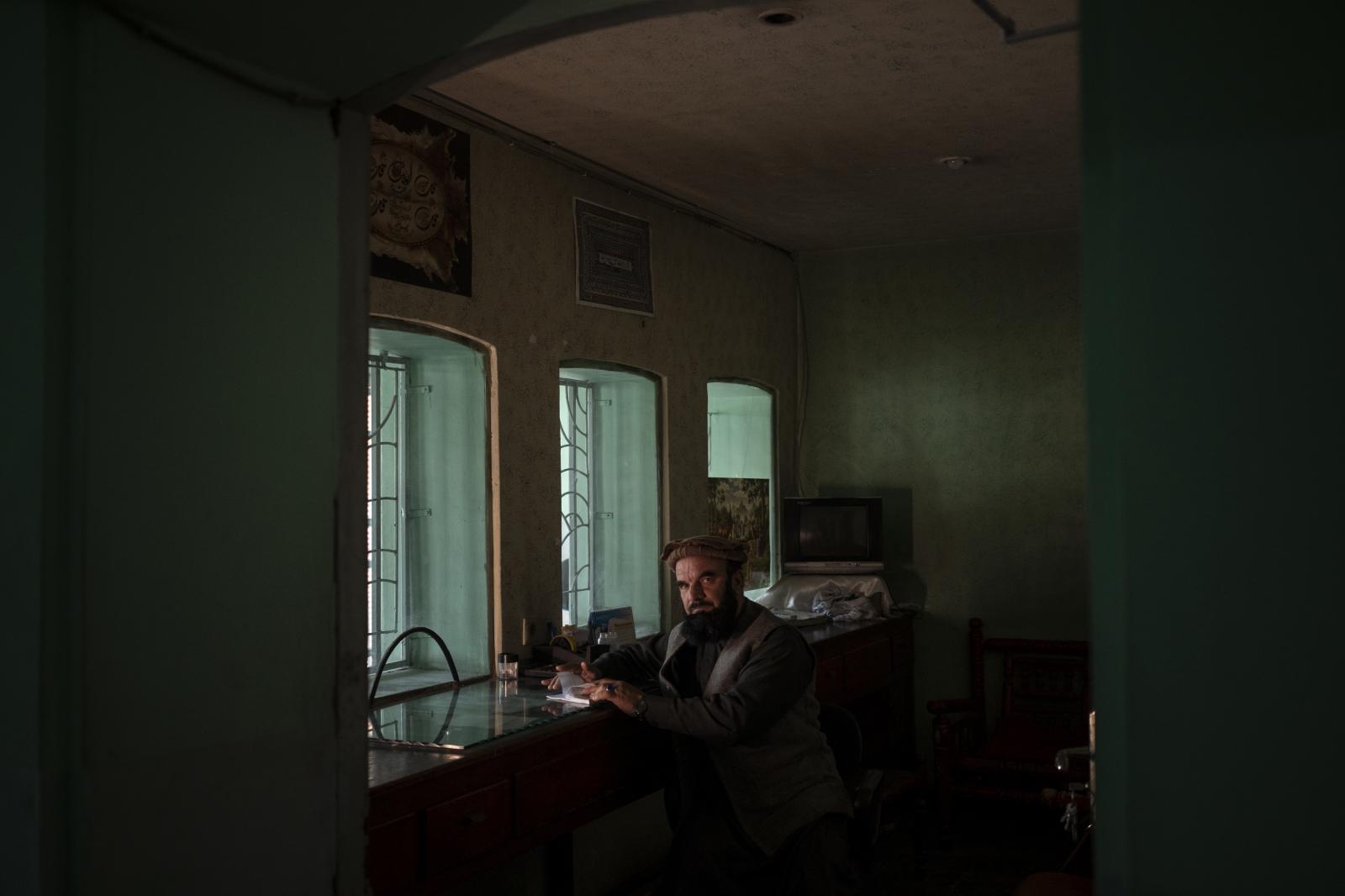Public Project
The Cinema of Kabul
Now the marquee is stripped of the posters of Bollywood movies and American action flicks that used to adorn it. The gates are closed.
After recapturing power, the Taliban ordered the Ariana and other cinemas to stop operating. The Islamic militant guerrillas-turned-rulers say they have yet to decide whether they will allow movies in Afghanistan.
Like the rest of the country, the Ariana is in a strange limbo, waiting to see how the Taliban will rule.
The cinema’s nearly 20 employees, all men, still show up at work, logging in their attendance in hopes they will eventually get paid. The landmark Ariana, one of only four cinemas in the capital, is owned by the Kabul municipality, so its employees are government workers and remain on the payroll.
The men while away the hours. They hang out in the abandoned ticket booth or stroll the Ariana’s curving corridors. Rows of plush red seats sit in silent darkness.
The Ariana’s director, Asita Ferdous, the first woman in the post, is not even allowed to enter the cinema. The Taliban ordered female government employees to stay away from their workplaces so they don’t mix with men until they determine whether they will be allowed to work.
The 26-year-old Ferdous is part of a post-2001 generation of young Afghans determined to carve out greater space for women’s rights. The Taliban takeover has wrecked their hopes. Also a painter and sculptor, she now stays at home.
During their previous time in power from 1996-2001, the Taliban imposed a radical interpretation of Islamic law forbidding women from working or going to school — or even leaving home in many cases — and forcing men to grow beards and attend prayers. They banned music and other art, including movies and cinema.
Under international pressure, the Taliban now say they have changed. But they have been vague about what they will or won’t allow. That has put many Afghans’ lives — and livelihoods — on hold.
For the Ariana, it is another chapter in a tumultuous six-decade history.
The Ariana opened in 1963. Its sleek architecture mirrored the modernizing spirit that the then-ruling monarchy was trying to bring to the deeply traditional nation.
7,071















